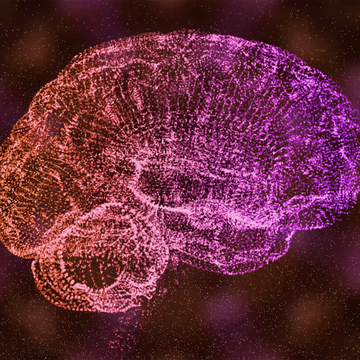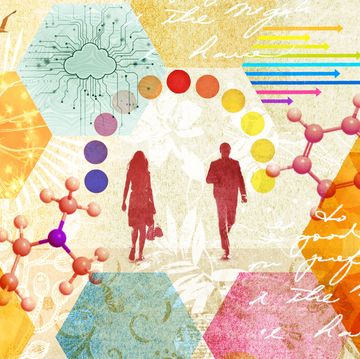Happiness may seem more elusive than ever—a quest as impossible as climbing Kilimanjaro on broken legs—with Covid variants jeopardizing our long-awaited return to normalcy, overtaxing our healthcare system, putting far too many of our lives at risk, and sending us back into dreaded social isolation.
But even in an enduring moment of tragedy and distress, we can still cultivate, even embody, happiness—and not by filling ourselves up with empty pleasures like high-end fashion labels and likes on Instagram. As Sonja Lyubomirsky, PhD, a psychology professor at the University of California, Riverside, and the author of The How of Happiness: A Scientific Approach to Getting the Life You Want, explains: “Researchers make a distinction between extrinsic goals–the pursuit of money, power, fame, beauty”—which don’t lead to happiness, “and intrinsic goals—personal growth, connecting with others, and contributing to society,” which do lead to happiness. Human beings share three basic needs that collectively lead to a happier life, she says: “Autonomy or control over one’s life; competency or efficacy; and connection or connectedness.”
To that end, Lyubomirsky, alongside her peer, Laurie Santos, PhD, a professor of psychology at Yale University and the host of The Happiness Lab podcast, offers small, actionable changes you can introduce into your life right now that will improve your satisfaction.
Take control of your time.
“Time is really the key currency in our lives,” she says, “and being able to choose how we spend it.” While most of us are stretched thin timewise, Lyubomirsky encourages us to carve out as little as 30 minutes a day—even if it means getting up earlier—to partake in activities or ambitions that “no one else is telling you have to focus on,” she says. It can be a personal project, a hobby, or relaxing into the joy of doing nothing at all. Even a small span of me-centric minutes will give you a sense of ownership over your life and hike up your happiness.
Pursue a goal that reinforces your sense of mastery and purpose.
“Pick a goal in your life that’s meaningful or important to you,” Lyubomirsky says. It can be a small goal (taking an English course on the novels of Charles Dickens), or a larger goal (going back to graduate school to get an MBA), “but do something to advance that goal every day. Take baby steps,” she says. “It’s really about making progress on the important things in your life.” Identifying and manifesting what brings you joy and meaning will make you feel a sense of accomplishment and purpose. “Building your skills will make you feel good about yourself, too. Whether it’s writing, memorizing poetry, cooking, or gardening, doing a little bit every day of what you love will boost your self-esteem and happiness,” Lyubomirsky explains.
Seek out meaningful connections.
An intimate tête-à-tête with close friends and family or with what Lyubomirsky calls “weak ties,” like a barista or a neighbor, will enhance your well-being and bolster your happiness, too. “Increasing your sense of connection with others is really critical. My favorite way to boost connection is by using a technique called ‘fast friends,’ which is a way to have a deep, meaningful conversation.” You might ask someone about a lifelong goal, the last time they cried, or whether or not they want to be famous, as Lyubomirsky recently did. “He actually had a really interesting story about coming from a famous family, which I didn’t know about, and how that affected his life. It was really a bonding conversation,” she recalls.
And don’t be shy about broaching tender or darker topics, because they, too, can facilitate closeness: “You might ask someone what’s the worst thing that has ever happened to them or when was the last time they cried in front of another person and why.” Nurturing our relationship with pets and God can also foster feelings of connectivity, Lyubomirsky says.
Make gratitude a daily habit.
Finally, Santos reminds us of the power of gratitude. “In the middle of a pandemic, it can be hard to be thankful, but the science shows that improving your gratitude, just listing a few things that make you grateful every day, can significantly improve your well-being,” she says.
Adopting these small, actionable changes into your daily life now will pave the way to a more joyful future.













